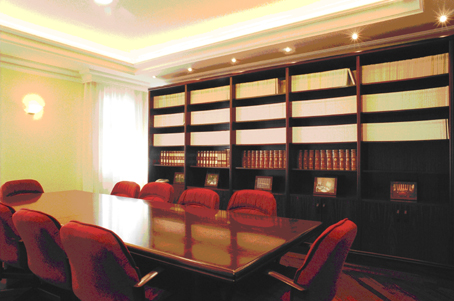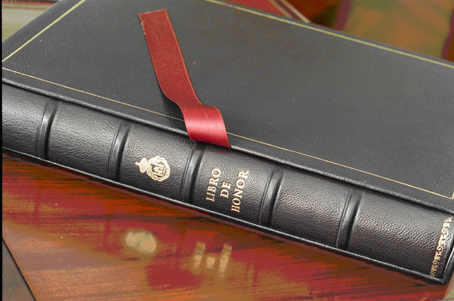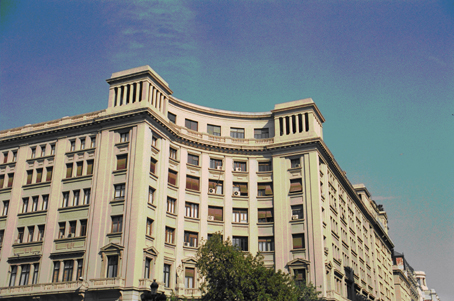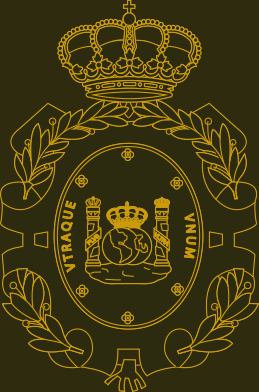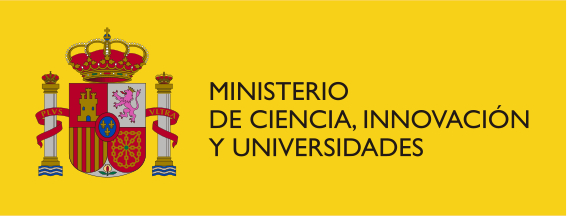The beginnings
The beginnings of our Institution can be found dating back to the figure of the Consolat del Mar, an organisation which was established in the ancient territories of the Crown of Aragon at the end of the XIII Century in order to handle commercial and maritime matters, initially for the Mediterranean and later for the Atlantic routes,such as corporative law and which during the Middle Ages gave way to various institutions, such as our Royal Corporation, promoter of the generosity, the spirit of solidarity and vision of the future that the commercial bourgeoisie of Barcelona in the XVIII century showed in its constant desire to create an organisation that was representative of economic activity charged with studying, defending and promoting measures capable of facing up to the economic realities of those times.
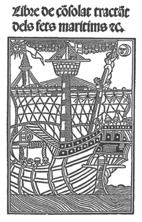
Origins
We have to go back to the 16th of March 1758, when Fernando VI granted formal permission for setting up the Real Junta Particular de Comercio {Royal Private Board of Commerce} in order to be able to find the deepest routes to the promotion of valuable studies and a defending of professional activity. In 1775 several petitions to the Board by groups of businessmen are recorded for research works to be carried out relative to business activity. These aspirations were intermittent realities until on the 26th of April 1787 the Academia de Comercio {The Academy of Commerce} was inaugurated. With this same spirit the Comisión de Fábricas {The Factories Committee} became a reality, a remote antecedent of the Fomento de Trabajo Nacional {National Work Promotion Office} and of the Chamber of Commerce, as well as the Sociedad Económica de Amigos del País {Economic Society of Friends of the Country}, all of which were patrons of the arts and sciences.
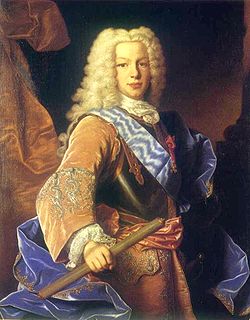
From that time a very tangible desire was evident for uniting research and teaching with the concern for the economic realities of the era and a willingness for advising Public Bodies. All of which is true to the source of thought and action, a motto which even today is that of the Real Academia de Ciencias Económicas y Financieras: “Utraque Unum”, emblem of the Spanish colonial coins which the Royal Corporation adopted as its emblem on its seals and its medals.
Throughout the period between the end of the XVIII century and commencement of the XX century political and social movements took place in Spain that caused important imbalances. Encounters between cultures, military confrontations, revolutions and the invasion of foreign troops, caused a breakdown in institutions and led to a confusion with regard to the means aimed at attaining the objectives of creating centres of excellence for the study and dissemination of theoretical and technical elements focused on channelling economic and financial activity towards the progress of society. It was seen that institutions with the same or similar objectives as those of the Real Academia de Ciencias Económicas y Financieras underwent different levels of fortune, although in many cases their historical evolution is unique: intermittent disappearance and reappearance.
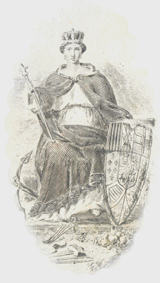
Consolidation
Maybe it was these hardships, caused by the problems of reconstruction, disruptions suffered by businesses and monetary and credit alterations that were the elements that extended certain dimensions to economic and financial issues whose importance was unknown until this time. The inherent problems of the Second World War did nothing further than to intensify the importance of economic-financial phenomena.
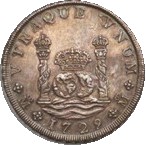
Such needs became crystalised in the foundation of the Sociedad Académica de Investigación Económica-Financiera {Academic Society for Economic-Financial Research} in 1940 and by approval in the Byelaws in this year in the name of the Academia de Ciencias Económicas y Financieras {Academy of Economic and Financial Sciences}. On the 19th of February 1943 a Solemn Session took place of the Public Meeting of Constitution at the Ateneo Barcelonés.
The current institution
The activities of the Acdemy continued without interruption for fifteen years, until on the 3rd of January 1958, The National Ministry of Education inaugurated the Order that approved the name from then onwards of the Real Academia de Ciencias Económicas y Financieras, qualified as an official body of a scientific and technical standing, located in Barcelona.
In the month of November 1975 Juan Carlos de Borbón was proclaimed King. This political transition based on dialogue and consensus would lead to a system of liberties, reflected in the Spanish Constitution of 1978. Through a Royal Decree 2878/1979 dated December 7, the BOE {Official State Bulletin} of December 29 1979, the Byelaws of the Real Academia de Ciencias Económicas y Financieras were approved. This was the very first approval of this nature within the category of Royal Decree and by it the Royal Corporation remained under the patronage of His Majesty The King. On the 16th of January 1980 unanimous approval was given to the award of the Medal of Honour to His Majesty King Juan Carlos I (the photograph below shows the award of the Medal of Honour by the Governing Body of the Real Academia de Ciencias Económicas y Financieras).

On the 16th of February 2004 the Real Academia de Ciencias Económicas y Financieras had the honour, for the very first time, of a visit from H.M. King Juan Carlos I. The words which he delivered to the Academics, full of affection towards our Institution, invited us all to continue with our project of delving deeper into the study of economic and financial sciences and to expand the source of knowledge to all countries.
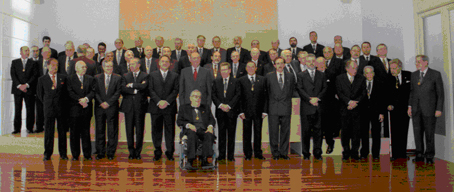
International Development
The activities of the Real Academia de Ciencias Económicas y Financieras are well known in all five continents. Prestigious researchers and exemplary businessmen, theorists and executives of economy and finance from different geographical areas have joined Spanish Academics in the tasks of setting up, divulging and using concepts, methods and techniques, all capable of making the problems that beset the current convulsed society easier to bear. We are encouraged by a common desire: to work in order to leave a better world to future generations, where cooperation between peoples and solidarity among citizens have their rightful place.
FONDATION NATIONALE POUR LA SCIENCE ET L’ART
President: Eugen Simion
Date: 28 September 2007
POLISH ACADEMY OF SCIENCES
President: Michal Kleiber
Date: 15 November 2007
MONTENEGRIN ACADEMY OF SCIENCES AND ARTS
President: Momir Djurovic
Date: 30 September 2008
UNIVERSITATEA DE VEST DIN TIMISOARA
Rector: Ioan Mihai
Date: 5 November 2008
THE ROYAL SCIENTIFIC SOCIETY OF JORDAN
President: Princess Sumaya bint El-Hassan
Vice-president: Khalid Zuhair Mohammad Kahhaleh
Date: 28 December 2008
ACADEMY OF SCIENCES AND ARTS OF THE REPUBLIC OF SRPSKA
President: Rajko Kuzmanovic
Date: 22 October 2009
ROMANIAN ACADEMY
President: Ionel Haiduc
Date: 11 February 2010
NATIONAL ACADEMY OF SCIENCES OF BELARUS
President: Mikhail V. Myasnikovich
Date: 3 September 2010
ACADEMIE ROYALE DES SCIENCES, DES LETTRES ET DES BEAUX ARTS
Permanent Secretary: Hervé Hasquin
Date: 21 October 2010
The
Real Academia de Ciencias Económicas y Financieras
is the only Royal Corporation in the Spanish State to have its headquarters in Barcelona.
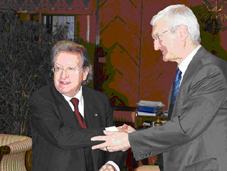
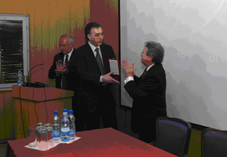
Instalaciones

